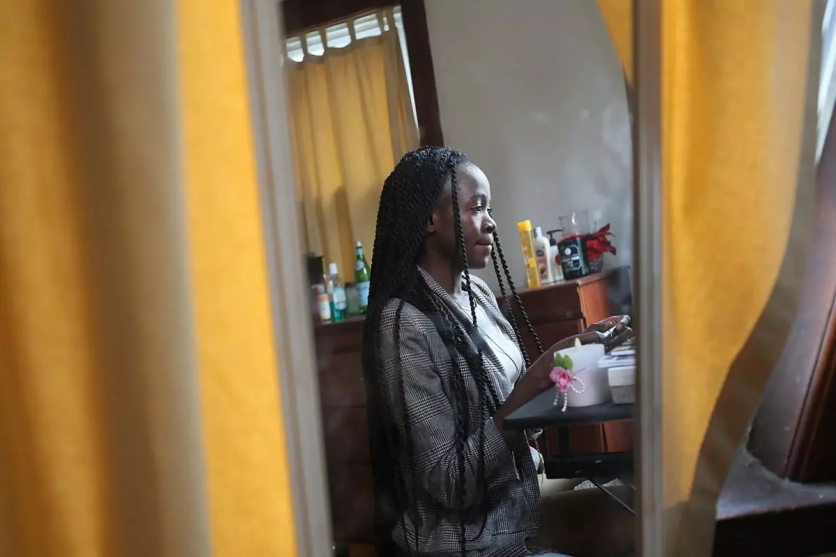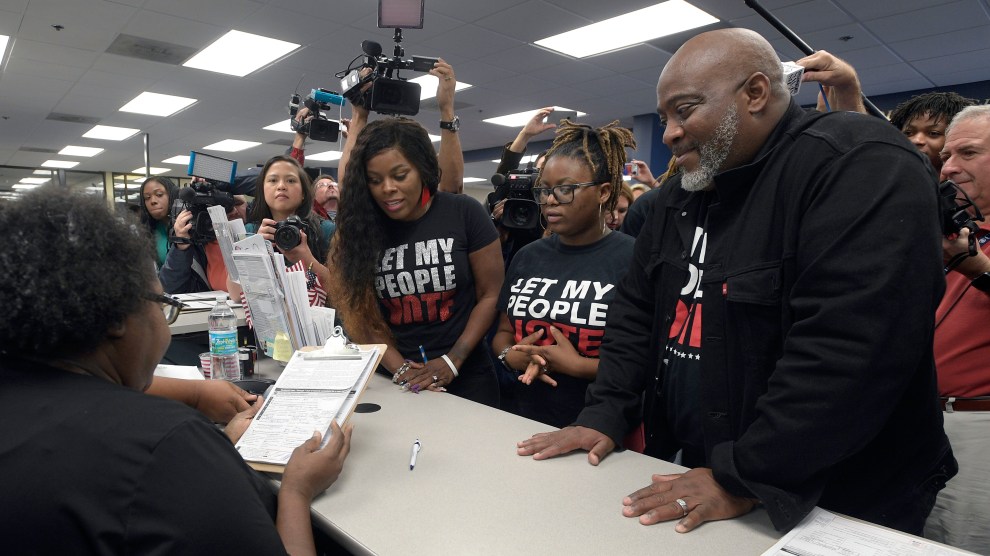
Alysa Liu during her free skate at the 2019 US Figure Skating Championships in Detroit, Michigan. Scott W. Grau/Icon Sportswire/AP
Before Alysa Liu, only three American women were able to land a triple axel—one of the most difficult skating moves—in a national competition. Last week, Liu became the first to land two in one program.
At 13, Liu is also the youngest figure skater to win a national individual championship, with her stunning free skate Friday night at the US Figure Skating Championships in Detroit.
The 4-foot-7 skater from Richmond, California, first hit the ice at the age of five, at a public skating session. Her father, recognizing her potential, soon got her private lessons, according to the San Francisco Chronicle.
Tara Lipinski, an NBC commentator who previously held the record for the youngest woman to win a skating championship, called Liu “the future of US ladies’ figure skating.”
Liu says she tries to keep it in perspective. “I tell myself, ‘Don’t think you’re the best in the world. You’re not the best yet.'” Watch highlights from Liu’s free skate and her adorable reaction to winning here.
Recharge is a weekly newsletter full of stories that will energize your inner hellraiser. Sign up at the bottom of the story.
- Saved. Milwaukee police officer Alberto Figueroa, 26, had just pulled over several people in a truck for a traffic stop when he was hit by a car. Figueroa suffered broken bones and a cracked hip, but it could have been worse if the people in the truck hadn’t jumped out to help, assistant chief Steve Caballero told Milwaukee TV station WISN. “They began checking his vitals [and] some of them performed CPR on him because they were unable to locate a pulse,” Caballero said. “That right there saved the officer’s life.” Thanks to Recharge reader David Plata for this item. (ABC News)
- Smashing the gender divide. When 13-year-old Alice de Rivera tried to attend New York’s highly regarded Stuyvesant High School in 1969, she was told she couldn’t because she was female. At the time, the public school was one of several in the city that only admitted males. Her legal challenge helped end single-sex public schooling in New York, and she instantly became an icon: Rock star Jimi Hendrix sent her an album and a note. When asked if her presence would disrupt Stuyvesant, she replied: “I intend to be disruptive not with my presence, but with my ideas.” Rivera moved and never ended up going to Stuyvesant, but half a century later, as a general practitioner in Maine, she’s proud of her role in ending gender discrimination and happy to have not attended the super-competitive school: “The alternative path allowed me to explore alternative parts of myself.” (The New Yorker)
- Free suits. Designer Christopher Schafer once got two bags of gently used suits from a client who didn’t want them anymore. Other clients did the same thing. A friend suggested he set up a nonprofit to provide tailored suits for unemployed, homeless, or retired men. The goal: A look that would help “customers” stand out during interviews or other events requiring formal wear, such as funerals. The nonprofit has served 7,000 men so far from storefronts in Baltimore and Los Angeles. Schafer, who fought his own battles with drugs and alcohol, says his mission to reinforce confidence is deeply personal. “We give them the clothes, but we want it to be clothing that they feel good in.” (Christian Science Monitor)
- From lawyer to advocate. When President Donald Trump announced the travel ban in January 2017, Hassan Ahmad knew he had to help. The immigration lawyer headed to Dulles International Airport, where he volunteered to offer legal assistance. Hundreds of people joined him at the airport, where officials refused to speak to lawyers and elected officials about how they were enforcing the executive order. The event changed the focus of Ahmad’s practice—and led to his decision to run for a seat in in the Virginia state house. His activism was unplanned, and he acknowledges his foray into politics is a bit scary. “When [the Trump administration] started changing the rules on us, that’s when I realized that I wouldn’t be able to look back on my career and not do something to change the system, or at least protect due process,” Ahmad said. (Mother Jones)
Have a Recharge story of your own or an idea to make this column better? Fill out the form below or send me a note to me at recharge@motherjones.com.
















